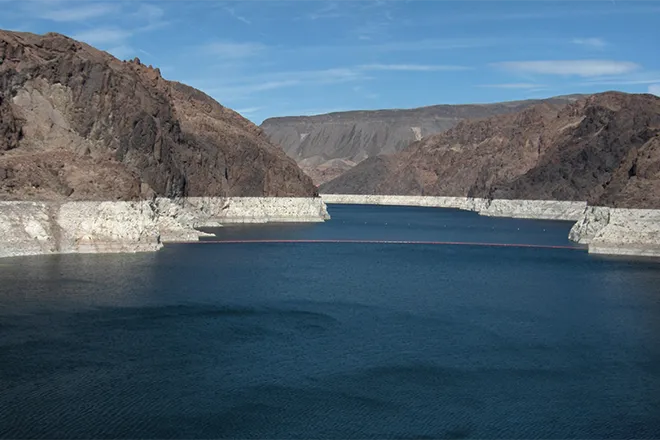
Daily Audio Newscast Afternoon Update - May 16, 2025
© INDU BACHKHETI - iStock-1336427297
News from around the nation.
Millions under threat of strong tornadoes and violent winds as storm danger increases Friday; Expanded Clean Slate laws in NC, US could improve public safety; TX farmers and ranchers benefit from federal conservation funds; Head Start supports WA parents, celebrates 60 years.
Transcript
The Public News Service Friday afternoon update, I'm Mike Clifford.
An incredibly dangerous day of severe thunderstorms, including the potential for long-lasting powerful tornadoes and hurricane strength, wind gusts, is ahead for the eastern half of the United States today.
That's from CNN.
They report the threat for tornadoes and damaging winds is escalating after the same system already produced destructive storms and tornadoes in the Midwest and the Great Lakes on Thursday. all part of a multi-day threat of widespread severe weather that will stretch in early next week.
Meantime, efforts to expand automatic expungement of criminal records could improve public safety according to proponents of these laws.
Clean slate laws have been passed across the country in various forms, sealing the non-violent criminal records of people in some cases.
That includes North Carolina, although the process of automatically expunging records has been stop and go in the state since it was passed in 2021.
For Aliso Pettis, with the criminal justice think tank R Street Institute, expungement makes sense because it happens after people have served their time and have taken responsibility for their actions.
She says people with criminal records face barriers to jobs, housing, and education, yet Pettis often hears the public admonish them for not being productive members of society.
We don't allow them to.
If we're gonna say yes, you've done your time and come back to being in society, but we're gonna hold this thing over your head over everything you try to do to be a productive member of society.
It's really counterintuitive.
North Carolina resumed automatic expungement last year after multiple posits.
I'm Eric Tegethoff reporting.
And a recent National Wildlife Federation poll shows Texas farmers ranchers benefit from voluntary conservation programs from the US Department of Agriculture and many would like to see the programs expand.
Respondents say the funding helps improve their bottom line and protect soil and water.
The Federation's Aviva Glazer says Texas producers use the programs in various ways.
Prescribed grazing and brush management and range planting were very popular practices.
There's been the Working Lands for Wildlife program that has helped with the monarch butterfly declines through voluntary measures that farmers and ranchers are doing with the help of this funding.
She says only 5 percent of the more than 500 farmers and ranchers polled disagree with increasing long-term funding from the USDA.
I'm Freda Ross reporting.
Next this Sunday is the 60th anniversary of Head Start, the federally funded preschool program that supports more than 12,000 kids up to age four in Washington and nearly 800,000 across the country.
Ashley Hyatt has three children at Head Start in Spokane.
She's currently in school to become a teacher and says without Head Start, her life would look very different.
I wouldn't be in school.
It wouldn't be possible.
Three children in daycare is gonna be close to $3,500.
Although cuts to Head Start are not specifically included in the Trump administration's most recent budget, some locations have faced funding delays this year, leaving them nervous about the program's future.
This is Public News Service.
Ohioans were among dozens of rural leaders who gathered in Iowa this month, urging lawmakers to protect public education, small businesses, and working families.
They say policies that gut local resources are destabilizing schools and harming rural communities.
Melissa Cropper, President of the Ohio Federation of Teachers, says the effects of disinvestment hit rural communities harder, where losing just one school or hospital can have outsized consequences.
All these institutions that we rely on have an even more significant impact in rural areas because of lack of options.
When a rural hospital closes down, it creates great hardship on people.
When voucher money goes to private schools, it has more of an impact 'cause they don't actually have an option of a private school to attend.
Some lawmakers argue that closure mandates hold schools accountable and push for improved performance.
Others say more investment is needed in wraparound services, early learning, and fair funding.
I'm Tramell Gomes.
Next to Indiana, where families there will not get the Sunbuck's grocery help they're used to.
Sunbuck's gave families $120 per child to buy groceries while schools were closed.
Last year, the program helped nearly 670,000 Hoosier children.
Food advocates say the move could hurt families.
Kate Howe with the Indy Hunger Network says Indiana passed up about 70 million in federal dollars.
We're not really sure why Indiana decided not to participate.
Information we've been hearing is that it's expensive for the state to administer, but it's actually relatively cheap compared to some other things.
The state hasn't said why it pulled out.
The Indiana Department of Agriculture and Governor Mike Braun's office did not respond to questions.
This story was produced with original reporting from Raina Rannell, 4Wish TV.
I'm Joe Ulory.
And today is Endangered Species Day.
Experts are reminding folks in Rhode Island of the plight of the North Atlantic right whale.
Right whales' habitat is off the Eastern seaboard where they stay close to the coast.
They're slow moving and feed near the surface.
And those factors, plus their high blubber content, once made them an ideal target for whalers.
They were hunted to the brink of extinction commercial whaling was banned in 1937.
And yet Jane Davenport with Defenders of Wildlife says they remain critically endangered.
Human activities are killing off right whales unintentionally via fishing gear entanglements and ship strikes.
And those have the same effect as killing right whales by harpooning.
They are reducing the population to the point where its survival is in question.
Current estimates place the right whale population around 370 with fewer than 70 females of reproductive age.
Brett Pivoteau reporting.
Right whales can be hard to spot as they travel underwater.
Their backs are black and they have no dorsal fin.
Right whales feed on tiny crustaceans.
Like other whales, their waste is an important part of the ocean ecosystem.
This is Mike Clifford for Public News Service.
Member and listener supported.
Find our trust indicators at publicnewsservice.org.

















